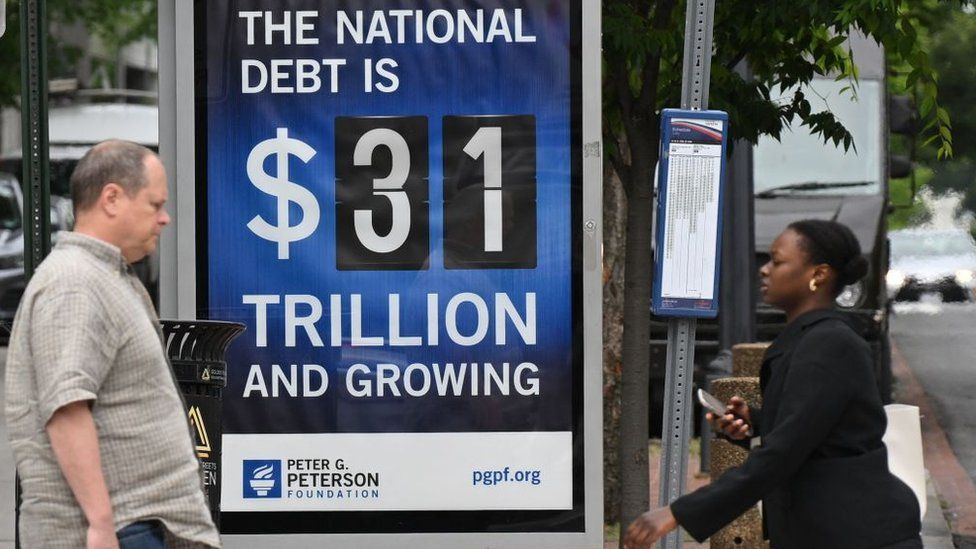
After a temporary halt in negotiations, the White House and Republican representatives have resumed talks on the US debt ceiling. The pause had caused concern in financial markets. House Speaker Kevin McCarthy confirmed that negotiations were back on, but the White House cautioned that there were significant differences to address.
Republicans had initially suspended talks, accusing the White House of making unreasonable demands. If a deal is not reached, the US could potentially default on its $31.4 trillion debt, leading to an inability to borrow money or pay all its obligations. The Treasury Department has warned that a default could begin on June 1. McCarthy expressed frustration over the expectation of increased spending next year, which he disagreed with. He also mentioned that he had not yet spoken with President Joe Biden, who was attending the G7 summit in Japan but would return to Washington soon after shortening his foreign trip.
Garret Graves, the lead Republican negotiator, stated that they had engaged in a frank discussion about realistic numbers and a viable path forward to address the country’s spending and debt problem. However, the White House indicated that there were still significant differences to overcome. Press Secretary Karine Jean-Pierre, speaking from Hiroshima, acknowledged the challenging nature of the conversation and questioned the Republicans’ commitment to deficit reduction and a reasonable agreement. Failing to raise the debt ceiling could result in the suspension of social insurance payments and federal/military salaries.
It also poses risks to the global economy, affecting prices and mortgage rates worldwide. The pause in talks earlier in the day was seen as a negotiating tactic, but it had a negative impact on US financial markets. Republicans are demanding budget cuts of $4.5 trillion in exchange for supporting the debt ceiling increase, which includes opposing some of President Biden’s legislative priorities. The White House criticized the Republican proposal, referring to it as a blueprint that would harm American families. However, there have been indications of potential budgetary concessions from the White House.
Both President Biden and Speaker McCarthy face pressure from different factions within their parties. With a slim Democratic majority in the Senate and Republicans holding a narrow majority in the House, reaching a deal has been challenging. Time is running out, and the two sides remain far apart. According to an Associated Press-NORC poll, about six in 10 Americans disagree with President Biden’s view that raising the debt limit and reducing the budget deficit should be separate issues.
Picture Courtesy: google/images are subject to copyright









